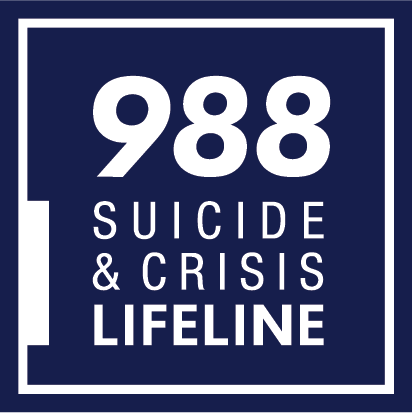
Sunday, July 16 marks the one-year anniversary of the introduction of the 988 Suicide & Crisis Lifeline, an initiative that changed access to mental health support across the United States.
A three-digit dialing code, 988, has replaced the previous ten-digit number for the National Suicide Prevention Lifeline, enabling individuals in crisis to easily connect with a national network of local and state-funded crisis centers.
The 988 Suicide & Crisis Lifeline was made possible by the National Suicide Hotline Designation Act, a bipartisan legislation signed into law in 2020. Collaboratively established by the U.S. Department of Health and Human Services, the Federal Communications Commission, and the U.S. Department of Veterans Affairs, the lifeline offers a vital link to the Veterans Crisis Line, allowing Veterans who dial 988 to connect with responders through the option to press 1 and engage via speaking, texting, or live chat.
Since its launch, the 988 lifeline has seen an increase in use, with over 4.5 million calls received from July 2022 to May 2023. In May alone, more than 460,000 contacts were routed through 988, with 66,259 of those directed to the Veterans Crisis Line, providing crucial support to our nation’s Veterans.
Despite the positive impact of 988, challenges remain. Even after a year since its launch, awareness of the lifeline among the general public is still relatively low. A small fraction of adults in the United States are familiar with 988, despite the fact that 23% of adults experienced mental illness in 2021, and a staggering 14.1 million Americans, or 1 in 20 people, experienced serious mental illness.
The availability of the three-digit dialing code, 988, has revolutionized crisis care by improving response rates and connecting more individuals to the help they need. However, continued efforts are required to raise awareness and ensure that mental health support is accessible to all who require it.
Recognizing the importance of addressing these challenges, the Department of Health and Human Services has recently announced more than $200 million in funding to expand local capacity for 988 and related crisis services. This funding aims to strengthen the infrastructure necessary to support the growing demand for mental health support.
With ongoing funding initiatives and collaborations, the hope is to build a system that can effectively address the mental health needs of individuals in crisis. The journey to strengthen and transform mental health support in the country continues, as the anniversary of 988 highlights both the achievements and the road ahead.













